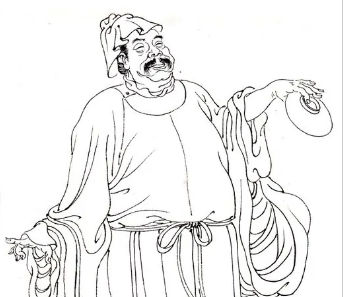In the long history of the Three Kingdoms period, Zhuge Liang, as the prime minister and strategist of Shu Han, played a crucial role in the country's development and stability. However, during his reign and after his death, Shu Han experienced significant talent loss and continuous decline in national strength. This article will explore this historical phenomenon and its underlying causes.

Firstly, while Zhuge Liang was alive, he attempted to revitalize Shu Han through years of northern expeditions, but these wars consumed vast amounts of manpower and material resources, exacerbating the domestic talent loss. According to historical records such as the "Records of the Three Kingdoms," by the time of Zhuge Liang's death, Shu Han had lost many outstanding generals and strategists. The older generation of heroes, such as Guan Yu, Zhang Fei, and Huang Zhong, had already passed away, and while the new generation of talents like Jiang Wei were brave and determined, their numbers and influence were limited.
After Zhuge Liang's death, the leaders of Shu Han included Jiang Wei, Fei Yi, and others. Jiang Wei inherited Zhuge Liang's will and continued the northern expeditions, but due to limited resources and strategic errors, he failed to achieve significant results. Fei Yi advocated for recuperation and recuperation, but he also failed to effectively halt the decline of national strength. Although these leaders had their own talents, they lacked Zhuge Liang's comprehensive coordination abilities and were unable to prevent Shu Han from declining.
Moreover, there were issues within Shu Han's bureaucratic system. Over time, power struggles and corruption among officials became increasingly serious, leading to talent loss and undermining government efficiency and public trust. The intensification of internal conflicts undoubtedly accelerated the decline of Shu Han's national strength.
In summary, during Zhuge Liang's reign and after his death, Shu Han experienced significant talent loss and continuous decline in national strength. The causes of this phenomenon were multifaceted, including the consumption of resources from continuous wars, the lack of leadership ability, and the intensification of internal conflicts. These factors combined to ultimately lead to the decline of Shu Han and its eventual annihilation by the Jin Dynasty. Studying this period of history not only helps us understand the political and military dynamics of the Three Kingdoms period, but also provides us with important insights into national governance and talent utilization.
Disclaimer: The above content is sourced from the internet and the copyright belongs to the original author. If there is any infringement of your original copyright, please inform us and we will delete the relevant content as soon as possible.































